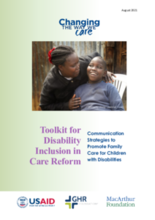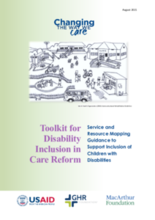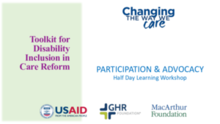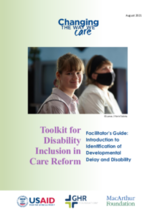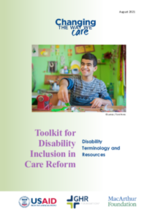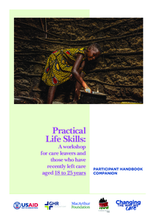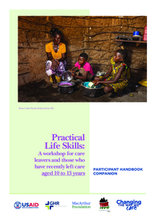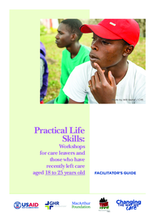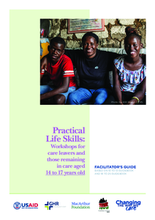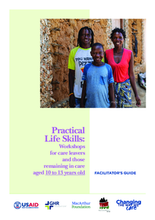Demographic Data
|
Sources: World Bank, UNDP, UNAIDS, DHS 2013 |
Displaying 2341 - 2350 of 14391
In this document, the awareness raising and advocacy is on behalf of or to benefit children with disabilities—many of whom may struggle to communicate because of their disability or whose voices are not heard—and because adults, systems and services often do not consider the opinions of children and children with disabilities are often left behind in changing or improving systems of care.
This guidance specifically refers to mapping of services as the process of locating and sharing information to a wide range of people about available services to support children with disabilities and their families.
This is a presentation for a half-day workshop on participation and self-advocacy approaches for working with children with disabilities and their families; includes slides, facilitation notes and a sample list of country-specific disability rights.
This facilitator’s guide accompanies the workshop slides by the same title, 'Introduction to the Identification of Developmental Delay and Disability' as part of the Toolkit for Disability Inclusion in Care Reform. It is designed to be used by the person providing the workshop.
The terminology and tips that follow may help as you use the Toolkit for Disability Inclusion in Care Reform and apply its principles to your program activities. It is recommended that you become familiar with these terms before reading the rest of the content and revisit as needed. Please keep in mind that disability is an evolving concept. Language that is preferred in one context may be different in another. Ask local organizations of persons with disabilities (OPDs) for the preferred terms in your language and country text.
This participants handbook has come into being by care leavers for care leavers. It has been developed based on the myriad of challenges shared and experienced by care leavers, hoping with the hope that it will support others leaving care.
This participants handbook has come into being by care leavers for care leavers. It has been developed based on the myriad of challenges shared and experienced by care leavers, hoping with the hope that it will support others leaving care.
This series of resources are designed by care leavers for care leavers to help equip youth for life outside of care, strengthen coping strategies, foster safety nets and community networks. It builds from earlier life skills work that the Kenyan Society of Care Leavers has done, supported by Changing the Way We Care with global best practices.
This series of resources are designed by care leavers for care leavers to help equip youth for life outside of care, strengthen coping strategies, foster safety nets and community networks. This Facilitator's Guide is based on the 10 to 13 guidebook and 18 to 25 guidebook.
This series of resources are designed by care leavers for care leavers to help equip youth for life outside of care, strengthen coping strategies, foster safety nets and community networks. It builds from earlier life skills work that the Kenyan Society of Care Leavers has done, supported by Changing the Way We Care with global best practices.

